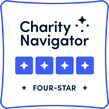Cocos Island Expedition: A Lesson in Enforcement
June 6, 2017
You don’t need to be a marine biologist to understand why Cocos Island is well worth protecting. While the schools of hammerhead sharks steal the show, the truth is that there are nearly 1,400 marine species identified around Cocos Island with a high degree of endemism. On a single dive, a lucky diver could see multiple species of sharks, mantas, yellowfin tuna, marlin, eels and a profusion of fishes. Good on the Costa Rican government, then, for having created Cocos Island National Park and thus prohibited the entrance of fishing boats within 12 nautical miles around the island.

As Mission Blue and our expedition partner Fins Attached cruised back to Puntarenas on the Undersea Hunter vessel, we had time to reflect on the jaw-dropping natural beauty we had witnessed at Cocos Island and the continuing struggle to protect it. The park is officially delineated and, yes, the marine life is thriving there in comparison to many other places on earth. Yet in order for Cocos to bounce back to the health it enjoyed when Dr. Sylvia Earle first dove here in 1972, enhanced enforcement is needed to stem illegal fishing, a practice that still occurs within the boundaries of this precious marine park.

The effort to keep the environment healthy at Cocos Island is handled by the park rangers who administer the Cocos Island Marine Conservation Area (ACMIC), as part of the National System of Conservation Areas (SINAC) of Costa Rica. On May 29th 2017, the expedition team visited the ranger station on Cocos Island and Dr. Sylvia Earle led a discussion with the rangers stationed there. As the hour-long meeting drew down, Dr. Earle asked the rangers a simple question, “what do you need to do a better job?”

A gentlemen from the back of the room responded, “I’ve worked for 21 years as a ranger at Cocos. At first it was 3 miles of no-take zone…then 5, and now 12 miles are protected around the island. But, the government though doesn’t take it seriously. They have kept the same amount of rangers even though there is much more area in which to enforce protection. We catch illegal fishermen and give them tickets. But the government doesn’t do anything to actually make it stop. The same boat will come into the park the next month and the next month. We don’t feel real support of the government.”

“What about the new radar station that has been installed on the island? Is that helping?” Dr. Earle probed.
“The radar is a really useful tool,” he responded. “We are seeing a lot of illegal fishing boats. But when we see three or four different boats at once, with the lack of patrol vessels and gasoline, it just doesn’t make sense to chase them. We just see them on the radar and can’t do anything. The big boats, like the ones fishing the tuna, are far out just within the 12 mile border. But we can’t go do anything because we don’t have enough fuel.”

The takeaway was clear. Cocos Island, while much more than the proverbial “paper park”, still needs more resources and support from the government in order for the dedicated rangers to be able to do their job. In Indonesia, instead of giving illegal fishing vessels tickets, they arrest the fishermen and burn their boats. While some may find that position extreme, it can’t be argued that the government of Indonesia isn’t serious about protecting their natural marine ecosystems.

Though Cocos Island served as a stopping point for pirates in the 16th century, a proper colony of humans has never been established on the island. And perhaps that’s for the better. Take Easter Island, for example, where not so long after people arrived all the trees were cut down. No more trees! And all of the seabirds that nested there – gone! The thriving population of humans at Easter Island crashed out of existence because they destroyed what keeps people alive – the environment. Blue parks like Cocos Island are critical in the fight to nurse the ocean back to health – to maintain a functioning ocean, which at its core, means preserving a planet on which we humans can survive. The Costa Rican government should heed Dr. Earle’s admonition – “No Blue, No Green” – and redouble their efforts to keep Cocos Island pristine and unmolested.









I spent years sailing to Isla del Cocos and hiking this spectacular island. Having been to hundreds of islands around the Pacific, it still is one of the most beautiful I have ever see. The wild pigs released by whalers hundreds of years ago were doing tremendous damage to the jungle, and I hope efforts are being made to control them. Aside from damage to the flora, the erosion caused by their rooting and digging causes sitting damage to the corals. Thank you for protecting this gem!
While Indonesia has many other problems to reconcile, the zero tolerance towards violating fishing laws is a model for others. With no consequences other than a ticket they’re right back the next day. Maybe the SAME day. The profits cover fines and they aren’t even a deterrent. In the meantime these criminals continue to fish some species to extinction. Actions speak louder than words. If we don’t get a handle on the population problem it’s all irrelevant anyway since the wildlife we’re trying so hard to save today will be an important food source on a planet unable to sustain ten billion people. We’re just postponing the inevitable.
I am immensely happy about what you are doing, my group that today is comprised of more than 40,000 people and we have more than 270,000 visualizations right now. These people are following you and I am happy about it.
The protection of the environment is the basis of life and I thank you.
THANK YOU
Your island is a priceless, irreplaceable ecosystem that is not matched anywhere else on the planet.
PLEASE, PLEASE, PLEASE! Allow this jewel of biodiversity to thrive, protected from being degraded by the abuses of man!